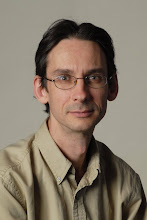Thursday, April 3, 2014
What do Manitoba and the Crimea have in common?
Several events / news stories over the last few months have
reignited my thoughts about regional / community identity that I thought I'd
left behind when I defended my thesis, getting on to almost 20 years ago. The first, was the events in Crimea. The second, closer to home, a question of who
should be on the Manitoba Walk of Fame, therefore, who is a
Manitoban.
I have to confess I don't of course have the answers, but I
want to share my own thoughts. Crimea is
an issue that no sane commentator, let alone politician should touch with a
barge poll, especially not a nuclear tipped one. Academically a very interesting question, is
it Russia? Is it Ukraine? Is it an independent Tartar territory, and if so, do
the Tartars even have a modernist sense of territorial contiguity, or do they
subscribe to some pre-(or post) modern sense of territoriality, where they
carry their identity with them, wherever they travel? I have no idea, of
course, but I'd be willing to bet that none of the current occupiers or
contending occupiers have given this option much thought. In reality, of course, it is much more than
academic. Lives have been lost, and many more before the issue is resolved, and
I want to be very clear, that I'm not taking a stance here at all. I only hope
somebody figures it out soon.
But the notion of what makes someone belong to a region does
raise some questions regarding my second question, who should be on the
Manitoba Walk of Fame? Who is sufficiently Manitoban. On the possible list of contenders are
several people who haven't lived in Manitoba or contributed significantly to
its cultural wellbeing. I'm thinking of Neil Young who left, as I understand it
as a teenager, and only makes sporadic visits, but also luminaries like
Marshall McLuhan, who while he certainly may have developed his ideas here,
also didn't leave a unique stamp on Manitoba.
Again I'm stumped, but I have some idea, that questions of identity /
belonging rest somewhere with the actions of the individuals, and not with the
territory itself. Crimea, like Manitoba
is a bounded piece of geography that has had human activity enacted upon it,
and that activity, in turn has coloured subsequent activity. It has become an
organic being that exists because of the activity it hosts, and the debate
about who is, or who isn't a member of the club, whether carried out through
military occupation, or much more harmless ponderings of who should be in the
Walk of Fame, is but one contributing factor to a set of questions that cannot
be resolved easily.
Subscribe to:
Post Comments (Atom)




No comments:
Post a Comment